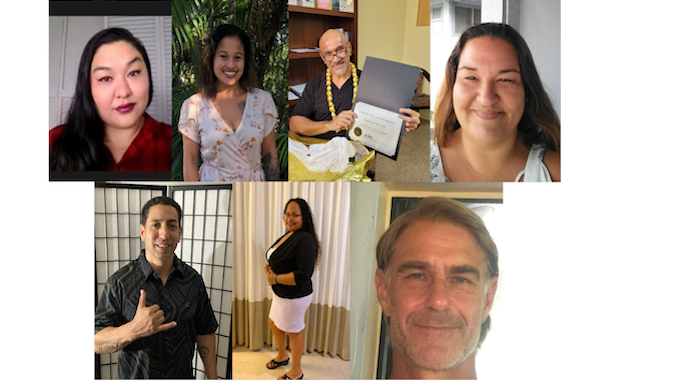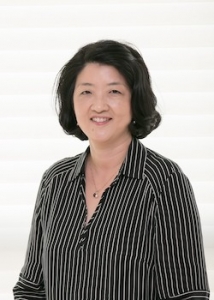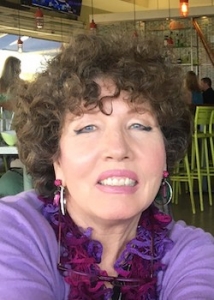
The University of Hawaiʻi at Mānoa and Leeward Community College were awarded a $2.2 million grant from the U.S. Health Resources & Service Administration to train students in substance use disorders counseling, treatment and after-care. Aimed at addressing the challenges of substance use disorders in Hawaiʻi communities, it will allow 88 students to become trained substance use disorders counselors over the next four years, at no cost to the students.

“We are extremely honored for this opportunity to expand and increase the behavioral health workforce in Hawaiʻi,” said Seunghye Hong, an associate professor with the Thompson School of Social Work & Public Health, and the principal investigator of the project administered from the Center on Aging. “We hope this will allow students to find gainful employment in the areas of substance use prevention, treatment and recovery.”
The training program will be called the Hawaiʻi Behavioral Health Training Institute (HBHTI). The grant will provide the students with scholarships to cover the cost of attending the program at Leeward Community College, as well as stipends to support them while they complete 400 hours of fieldwork. Upon completion, the students will earn a Certificate of Competence in Substance Use Disorders Counseling (COSUD).
“We want to address the challenges of substance use across our island communities, and particularly focus on high-need and high-demand areas,” Hong said. The HBHTI will offer students community-based experiential training, while fostering an integrated health approach to address substance use prevention, treatment and recovery services.
Apprenticeship opportunities
Students who have obtained their certificate also have the opportunity to work one-year full-time or two-years part-time as apprentices for an organization to further enhance their professional and clinical skills through on-the-job training. Students participating in the apprenticeship are committed to working towards becoming a Certified Substance Abuse Counselor (CSAC) from the Hawaiʻi Department of Health, while the partnered organizations have agreed to support them in this process.
The apprenticeship is a critical component of the project, since it enables organizations working in rural and underserved areas access to a talentpool of new professionals who are dedicated to growing their expertise and helping address the substance use issues in the state. Simultaneously, the apprenticeship element of the program is meaningful for participants as they receive a retention bonus and are provided educational training designed to advance their skillset.
Training students for rural areas
The HBHTI program is especially dedicated to cultivating opportunities for students in rural areas and will work with neighbor island students by offering synchronous online classes for the Leeward CC COSUD program and partnering with local organizations throughout the state to provide meaningful career pathways.

According to Hong, all four Hawaiʻi counties have severe shortages of behavioral health personnel. The vision of HBHTI is to help address the gaps in services by supporting training opportunities in rural areas and recruiting students with a passion to serve their home communities.
“We recognize the importance of recruiting a diverse group of candidates from around the state to Leeward CC’s COSUD certificate program and to the field,” said Gwen Williams, professor and program coordinator of the COSUD program, co-principal investigator and leader of the collaboration between the UH Community Colleges. “There is a dearth of substance use disorder counselors who come from vulnerable, marginalized communities, and these communities unfortunately often suffer the most substance use-related problems. We hope to not only recruit learners from rural areas but also develop fieldwork and apprenticeship sites in these areas.”
For more information on the Hawaiʻi Behavioral Health Training Institute, students can email HBHTI@hawaii.edu.
This project is supported by the Health Resources and Services Administration (HRSA) of the U.S. Department of Health and Human Services (HHS) under 1 M01HP42453‐01‐00, Hawaiʻi Behavioral Health Training Institute, totaling $2,216,000 with 0 percentage financed with non-governmental sources. The contents are those of the authors and should not be construed as the official position or policy of, nor should any endorsements be inferred by HRSA, HHS or the U.S. Government.

